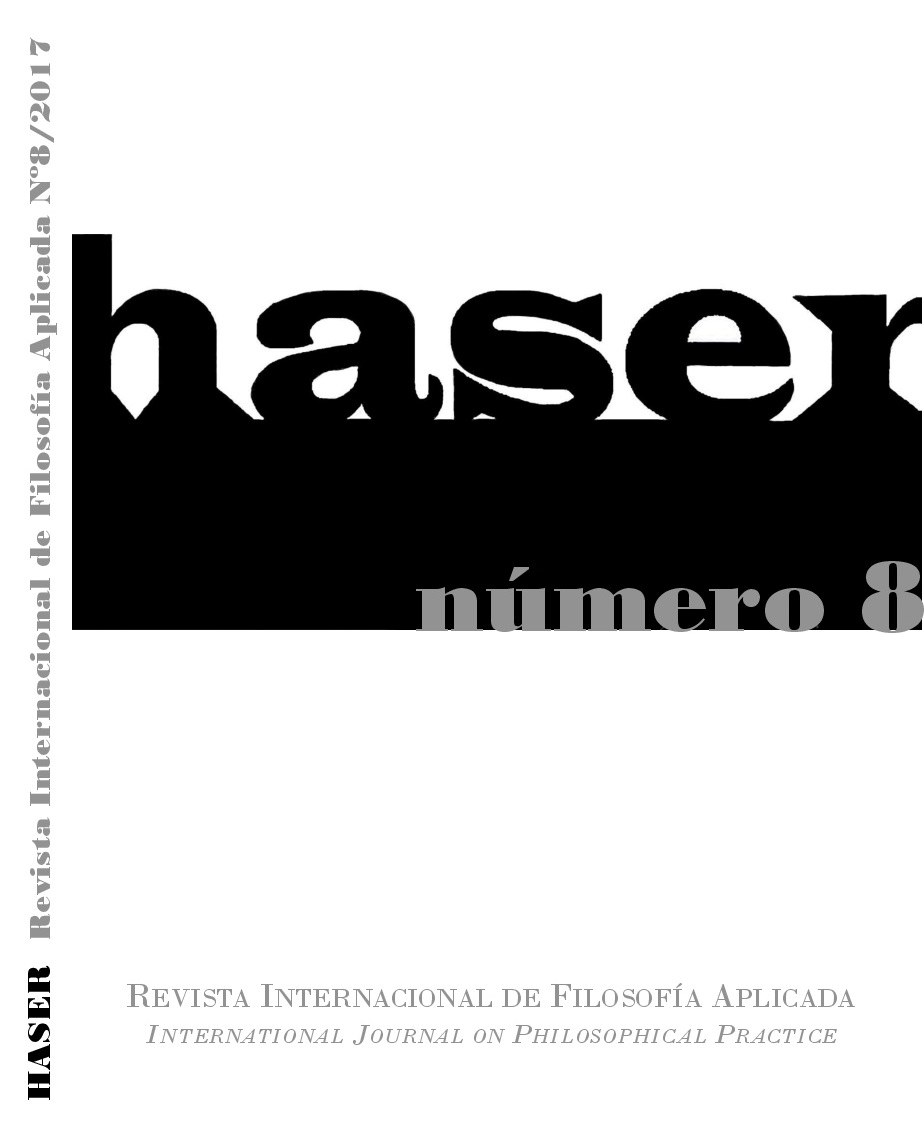ROLE-TAKING AS FACT AND EPISTEMIC VIRTUE (FROM SUBSTITUTION TO IMPERSONATION)
Abstract
The mechanism of the so-called role-taking is not only relevant in the psychological and social development of the subject, but also in terms of his cognitive and, more specifically, rational and ethical life. Therefore, it must be approached not only as a fact, but as an epistemic virtue, with wide repercussions. In this article I take four references to investigate this duality of fact-virtue and its challenges, namely the evolutionary psychology studies on role-taking, A. Schütz's theses on “common sense”-constructions, the critical dynamics of Kant´s sensus communis logicus and the proposals of S. Benhabib on what she calls substitutionalist universalism (with a note on the Habermasian ethics of discourse). In all cases, it is a question of ensuring that a substitution mechanism does not become an impersonation trap of the Other
Downloads
Downloads
Published
How to Cite
Issue
Section
License
Los autores/as que publiquen en esta revista aceptan las siguientes condiciones:
1. Los autores/as conservan los derechos de autor y ceden a la revista el derecho de la primera publicación, con el trabajo registrado con la licencia de atribución de Creative Commons, que permite a terceros utilizar lo publicado siempre que mencionen la autoría del trabajo y a la primera publicación en esta revista.
2. Los autores/as pueden realizar otros acuerdos contractuales independientes y adicionales para la distribución no exclusiva de la versión del artículo publicado en esta revista (p. ej., incluirlo en un repositorio institucional o publicarlo en un libro) siempre que indiquen claramente que el trabajo se publicó por primera vez en esta revista.
3. Se permite y recomienda a los autores/as a publicar su trabajo en Internet (por ejemplo en páginas institucionales o personales) antes y durante el proceso de revisión y publicación, ya que puede conducir a intercambios productivos y a una mayor y más rápida difusión del trabajo publicado (vea The Effect of Open Access).
- Abstract 752
- PDF (Español (España)) 57


